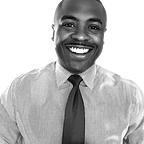ESPN CAN’T HANDLE THE TRUTH
Alternative Title: Let’s see if I can write about what Paul Pierce did without losing my job like he did.
By now, you’ve heard about NBA Champion Paul Pierce live-streaming himself at a poker game smoking a blunt while (barely clothed) women were massaging his shoulders and twerking. Pierce — aka The Truth — has been a basketball analyst for ESPN since 2017. After ESPN execs caught wind of his ill-conceived video, The Truth lost his job.
Outside of his irrational hatred for LeBron James, Pierce has been a decent analyst, so many people think the Network was too hasty in firing a bona fide legend. Pierce broke no laws but he did embarrass ESPN. They probably fired Pierce due to the “morals clause” in his contract. Here’s a typical morals clause:
The employee shall not do anything which might: (A) be considered immoral, deceptive, or scandalous; or (B) injure, tarnish, damage or otherwise negatively affect the reputation and goodwill associated with the company.
If you’ve ever worked for a high-profile company or have gotten paid as an influencer, chances are you’ve signed a clause like this.
It’s easy to see how Pierce’s actions fit this definition, but many basketball fans don’t think it was that big of a deal. Some commentators believe Pierce should have been suspended for a week or two, but they think ESPN’s punishment was “a ridiculous overreaction.”
I’ve been thinking about this for a few days. From a corporate governance and business strategy viewpoint, ESPN just couldn’t handle The Truth. Here are three reasons why:
(1) ESPN must put Disney’s best interests first.
Because ESPN is a media giant, everyone acts like ESPN makes all of the rules in the sports entertainment world. This is correct, in part. ESPN has pushed sports media beyond what anyone could have imagined. However, we should not forget that ESPN is owned jointly by The Walt Disney Company (80%) and Hearst Communications (20%). Disney is a publicly-traded company, with its registered office in Delaware. Everybody sitting on the Board of Directors for Disney and ESPN owes a fiduciary duty of care to the Disney shareholders. The duty of care requires “informed, deliberative decision-making based on all material information reasonably available.” They must make act in the best interests of the corporation at all times.
ESPN cannot make decisions solely based on what their viewers feel is “okay” or “not a big deal.” ESPN must make decisions with Disney’s actual customers in mind. Remember that Disney’s customers aren’t just five-year olds in Mickey Mouse ears or the people that watch ESPN games on their cellphone while standing in line at the grocery store. Disney’s customers are also the thousands of companies that advertise on Disney’s networks and in Disney’s theme parks.
If ESPN didn’t act swiftly, Paul Pierce’s behavior would likely scare off advertisers.
(2) ESPN is trying to survive.
It’s a gross exaggeration to say that ESPN is struggling. But it’s accurate to note that ESPN is fending off competition from the more brash groups like Barstool Sports and the conservative outlets like Fox. The sports media landscape is deeply divided. (link — https://www.2cv.com/insights/the-sports-media-landscape-post-pandemic-consumer-behaviours-may-accelerate-towards-streaming-but-sports-broadcasting-wont-necessarily-be-quick-to-follow-suit/ ) Just this week, I’ve watched hours of sports content on a variety of networks and platforms from Barstool to ESPN, Fox, Peacock, Hulu, YouTube, and The Athletic. Every athlete has their own podcast and it seems like everyday one of my friends decides they no longer need cable to watch live sports. During the pandemic, ESPN viewership was down even after live sports returned.
ESPN is trying to figure out how to retain its audience. It’s a safe bet that ESPN cannot (and will not, in the short term) grow its American audience. But ESPN is doing everything it can to stop hemorrhaging viewers to other networks. That includes making sure their personalities are not controversial. There are numerous examples of this. Whether right or wrong, everyone can name five or six personalities that ESPN fired or refused to renew because they rubbed too many people the wrong way.
(3) Precedent.
This is simple. If ESPN retained Paul Pierce, how does ESPN justify clamping down on similar behavior in the future? Obviously the more talented and well-liked personalities get better treatment, but what does ESPN do when some young, random journalist does the same thing Pierce did? I highly doubt ESPN can stomach having several videos like this floating around the internet.
Further reading
https://www.cnn.com/2021/04/06/media/paul-pierce-espn-analyst-fired-instagram-video-trnd/index.html
https://www.skadden.com/insights/publications/2020/02/directors-fiduciary-duties
https://www.thefashionlaw.com/resource-center/morals-clauses-in-endorsement-contracts/
